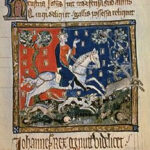Growing up in the 1970s meant navigating the choppy waters of adolescence with a soundtrack of rock and roll rebellion. For a 13-year-old in 1975, bands like Led Zeppelin, Kiss, Bowie, and Pink Floyd were the anthems of our converted garage clubhouses, spaces where we gathered, pretending to be the epitome of cool. Sipping stolen beers, attempting to decipher the enigmatic lyrics of “Stairway to Heaven,” we fancied ourselves hardcore, juvenile delinquents fueled by rock. Yet, beneath the surface, childhood softness lingered. Back home, guards dropped, and hidden passions emerged. While Eddie had his Archie comics, my secret indulgence was Elton John.
My Elton John affair had been simmering since 1973. “Daniel” had tugged at my heartstrings, and “Crocodile Rock” became an inescapable earworm. I spent my allowance on Don’t Shoot Me, I’m Only the Piano Player, believing it to be Elton’s zenith, only to be utterly captivated later that year by the sprawling brilliance of Goodbye Yellow Brick Road. At eleven, the album’s complexities were still beyond my full grasp, but its genius was undeniable.
My Elton John devotion remained a closely guarded secret. Magazine articles were meticulously clipped and pasted into a scrapbook, a shrine to all things Elton. Posters and album covers were conspicuously absent from my walls. My tenuous hold on the garage rock clique depended on superficial common ground: Robert Plant, illicit substances, and pseudo-intellectual debates about rock lyrics. Confessing my Elton John fandom felt like social suicide.
Then came Caribou in early 1974. “The Bitch is Back” felt daring, almost scandalous in a radio landscape still averse to profanity. Allowance money was scarce at 12, mostly allocated to Slurpees and Fun Dip. Caribou would have to wait for Christmas. But then, a beacon of hope in November 1974: Elton John’s Greatest Hits album. A compilation of all my cherished songs, conveniently in one place! It immediately topped my Christmas list, and my parents, relieved at my “wholesome” musical taste compared to Zeppelin or Bowie, happily obliged. Post-Christmas dinner, “Honky Cat” filled the living room as I danced, serenading my five-year-old sister with “Goodbye Yellow Brick Road.”
Elton John’s Greatest Hits resided with the living room stereo, strategically placed to avoid detection by my friends. Hiding my fandom felt like a betrayal to Elton himself. Coming out as a fan would have to wait until after Captain Fantastic. Fear of ridicule, of losing my fragile social standing, kept my secret safe. Looking back, the absurdity of losing friends over music is clear. They likely wouldn’t have ostracized me, but the laughter, the potential mockery, felt like a fate worse than social exile. So, the fandom remained concealed.
Paradoxically, this secrecy fostered a deeper connection. Elton became mine, a private world shared only with his music. It felt like a bond, a secret pact between myself, Elton, and, to a lesser extent, Bernie Taupin. Listening to Elton John’s Greatest Hits transformed into a ritual, a summoning of these musical deities. Lacking my own turntable until the following Christmas, the living room stereo became the altar, cross-legged sessions in front of the cabinet part of the sacred rite. My middle sister would invariably join for “Bennie and the Jets,” and my mother would often linger, drawn in by the melancholic beauty of “Daniel.” Initially a solitary act, my listening sessions evolved into communal experiences, my family joining in, creating a safe space to unabashedly celebrate the joy of Elton John. They understood, they didn’t judge, they simply shared in the musical elation.
My fervent Elton John phase waned after Captain Fantastic. New musical obsessions emerged, and subsequent albums failed to resonate as deeply. Yet, I consistently return to his earlier work, especially Goodbye Yellow Brick Road and Madman Across the Water. But it’s Elton John’s Greatest Hits that remains truly special, a sonic time capsule brimming with memories of family sing-alongs and solitary teenage reveries.
When I mentioned writing about this greatest hits album on social media, someone dismissed it as “cheating.” I vehemently disagree. This album wasn’t just a collection of hits; it was a gateway to a deeper appreciation of Elton and Bernie’s artistry. It provided the backdrop for cherished family moments, belting out “Bennie and the Jets” together, and intensely personal experiences, passionately singing “Don’t Let the Sun Go Down on Me” and dancing wildly to “Saturday Night’s Alright for Fighting.” These vivid memories, these emotional connections, are precisely why Elton John’s Greatest Hits deserves to be celebrated, not dismissed. It’s more than just a compilation; it’s a soundtrack to a formative chapter of life.

